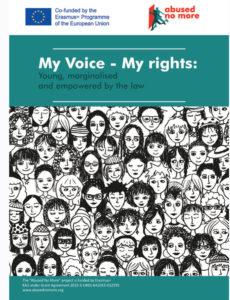
Download the report here
Despite the law acknowledges their civil rights, young migrants are exposed to multiple and intersectional discrimination in employment, housing, education, institutional and family contexts. They have limited knowledge and understanding of their rights and available services to tackle legal issues affecting their lives and report cases of discrimination and violence which leaves them disempowered in their day-to-day interactions.
The need for public legal education and training schemes for marginalized youth on discrimination based on a gender-sensitive approach and available in a language that they understand is critical to help recognise when they may need support, what sort of advice is available and where, and how to go about getting it. Equally important, proactive campaign to educate Romanians about migrants, including refugees’ rights is a practical and powerful way to increase public understanding about their rights and prevent instances of discrimination.
Considering the important role of NGOs and informal networks within migrant communities, greater use could be made of these structures to provide legal information and education to marginalized migrant youth because of their, credibility, commitment, language ability, and cost-effectiveness. Thus, it is recommended to build their capacity to recognize and tackle discrimination-related issues, including GBV in a gender 17 and cultural sensitive way. The availability of modern resources for professionals including online training manuals, workshops, good practice seminars and exchanges are highly recommended.
At the policy level, considering the particular vulnerabilities and GBV facing migrant women actions should be taken to introduce gender mainstreaming and develop tailored programs for victims based on their specific needs (information, training, legal and psychological assistance, shelters, interpreters, financial support etc.) and closer monitoring of the phenomenon.
Download the report here




